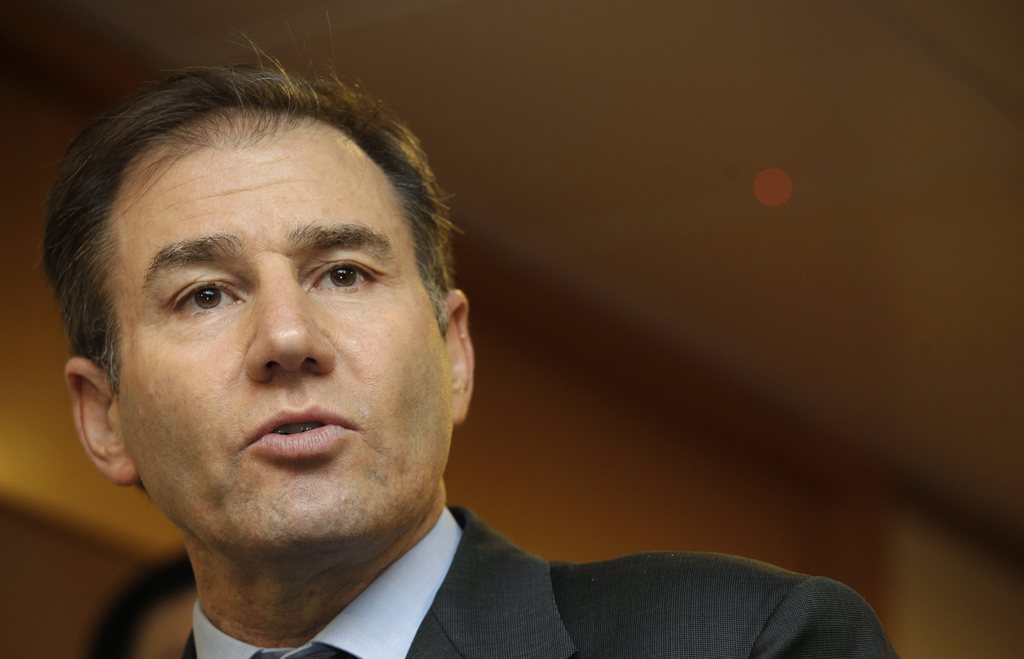
Glencore boss speaks out over tax windfalls

The head of commodities giant Glencore, Ivan Glasenberg, has spoken for the first time about Zurich villages donating part of tax windfalls from his company back to the countries where they were generated, saying the firm had done nothing wrong.
The South African Glasenberg, who made the comments in a rare interview to Swiss public television SRF on Thursday evening, said it was up to these communes to decide what to do with the money.
In Switzerland and elsewhere, non-governmental organisations have accused Glencore Xstrata – it merged with Xstrata in April 2013 – of human rights abuses and environmental damage during its extraction activities.
The firm, which posted a turnover of $214.5 billion (CHF194.8 billion) in 2012, is actually based in Baar, in canton Zug.
But when Glencore was floated on the stock exchange in 2011, Glasenberg, who owned about 16% of the capital, earned several billion dollars. His home commune of Rüschlikon, in canton Zurich, some 20 kilometres away from the company headquarters, therefore saw its tax revenues rise by CHF360 million.
Of this, around CHF165 million were immediately redistributed to the canton of Zurich’s most disadvantaged communes via a special fund.
Initiatives
But by the end of 2013, four of them, such as the rural Hausen am Albis – home to 3,300 people – had voted in favour of initiatives to give 10% of the money to aid projects in countries such as the Democratic Republic of Congo or Colombia. Another village, Mettmenstetten, is also intending to donate some money.
“I hope that they are not giving the money back because they think Glencore has done something wrong in these countries. Glencore has not done anything wrong,” Glasenberg said in the interview.
The Swiss should be proud of companies like Glencore, which are operational worldwide, he added.
In total, four communes have decided to keep the Glencore money. Still pending is an initiative in Zug, which calls for CHF100,000 to be given in solidarity to people in countries with raw materials resources.
According to the Swiss Agency for Development and Cooperation (SDC), extensive known and suspected raw materials deposits are to be found in often politically unstable developing countries. Many developing countries are highly dependent on their commodities exports.

In compliance with the JTI standards
More: SWI swissinfo.ch certified by the Journalism Trust Initiative

















![The four-metre-long painting "Sonntag der Bergbauern" [Sunday of the Mountain Farmers, 1923-24/26] had to be removed by a crane from the German Chancellery in Berlin for the exhibition in Bern.](https://www.swissinfo.ch/content/wp-content/uploads/sites/13/2025/12/01_Pressebild_KirchnerxKirchner.jpg?ver=8f77363a)











You can find an overview of ongoing debates with our journalists here . Please join us!
If you want to start a conversation about a topic raised in this article or want to report factual errors, email us at english@swissinfo.ch.